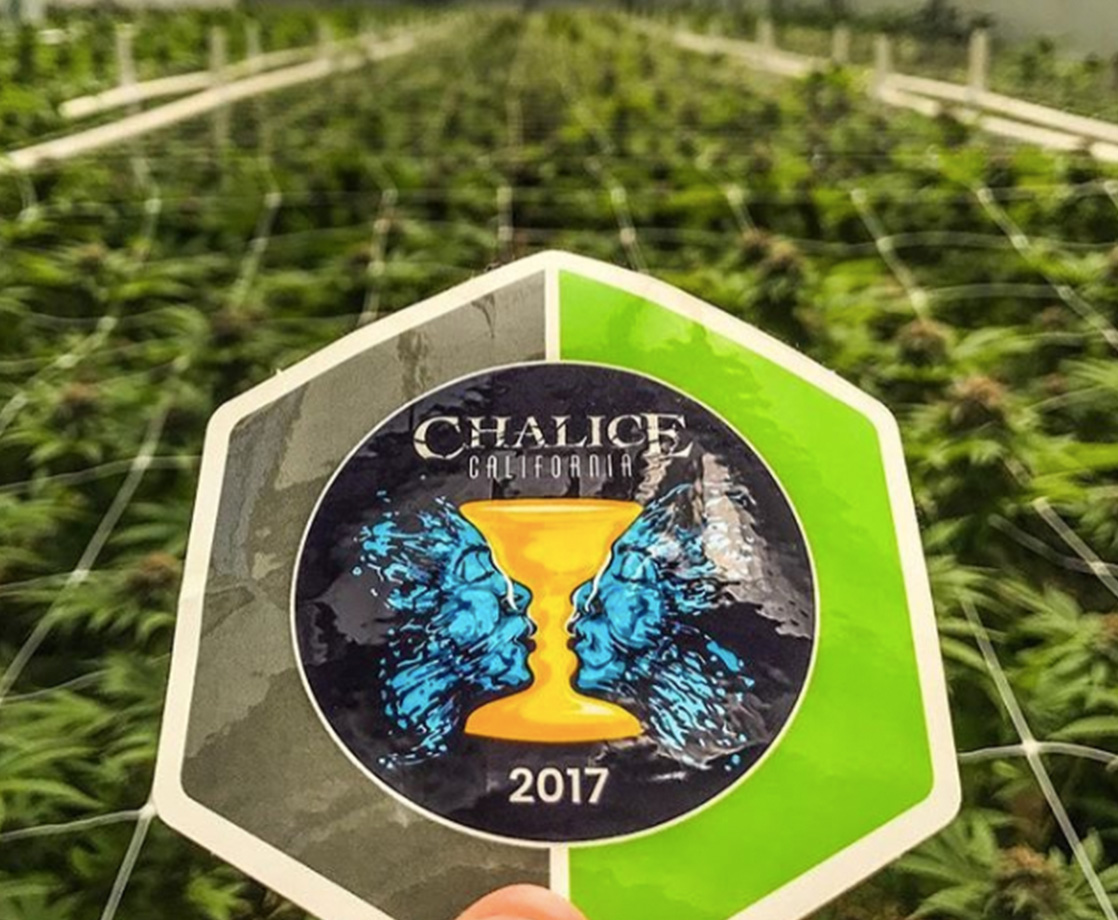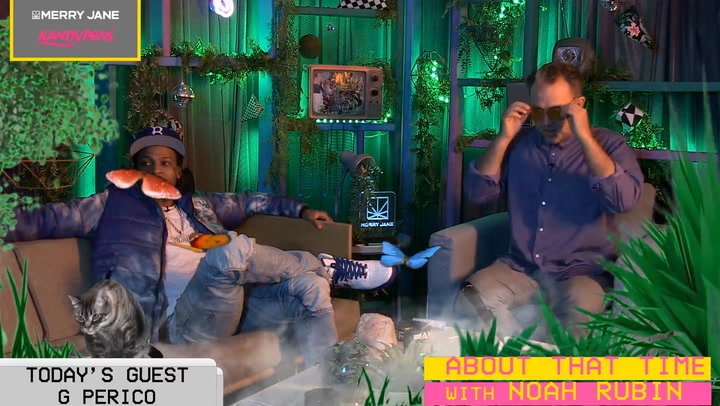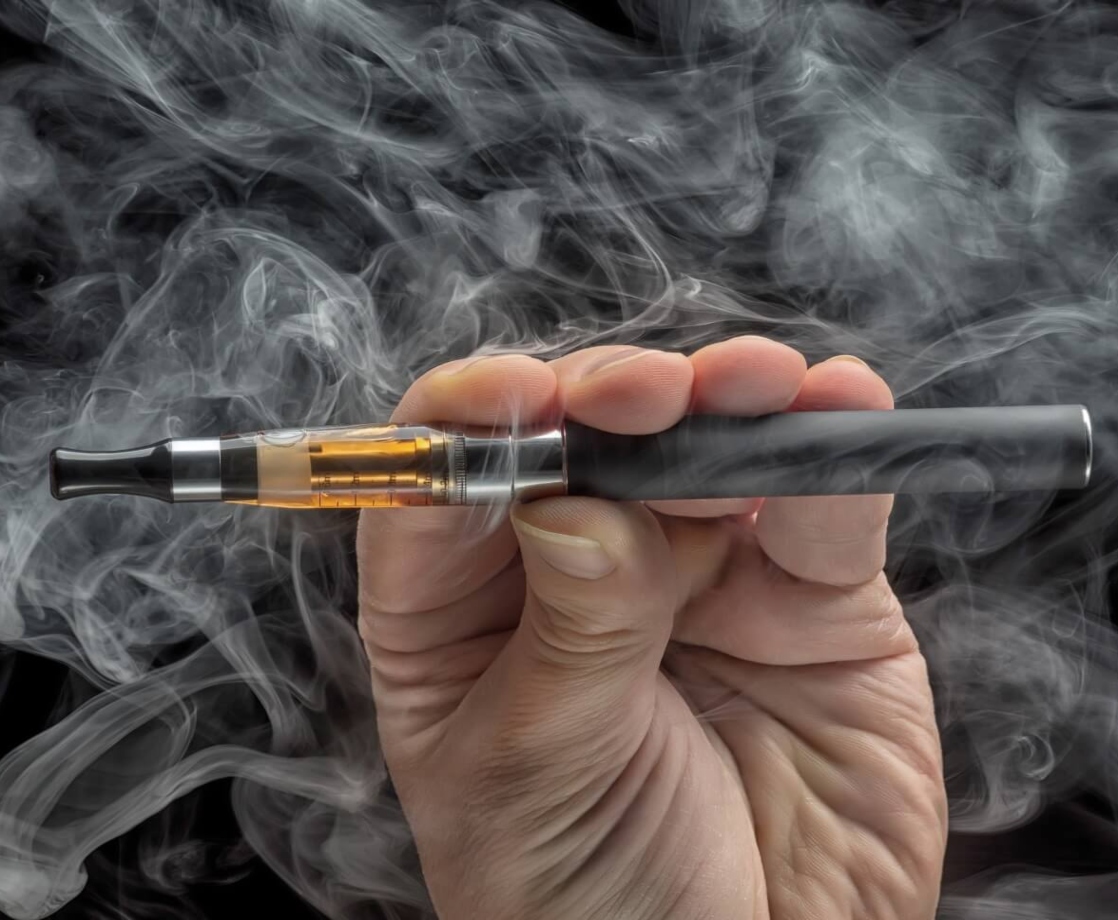All images courtesy of the Chalice Cup
Last weekend, weed insiders from all over the country braved 100+ degree temperatures, trekking out to the San Bernardino desert for Chalice Cup, Southern California’s fastest growing weed festival. Part cannabis competition, part music fest, all celebration of the culture, Chalice Cup goes beyond its peers, functioning as a microcosm addressing larger issues facing the marijuana industry today.
As cannabis moves from the black market to the stock market, what was a cottage industry of underground operations has exploded to a multi-billion dollar behemoth teetering on the brink of legality. New blood investors, blinded by fiscal hype and willing to sacrifice any morality for higher returns, are pushing out lifers who know the plant, culture, and myriad of medicinal benefits that cannabis offers.
A lack of regulation on pesticide levels and general standards of safety have allowed many of these immoral brands to take advantage of a public largely in the dark. However, come Jan 1st, California brands will have to take responsibility for their process by adhering to strict testing that will determine proper pesticide and pollutant levels in products, putting the power back in the hands of those who know how to responsibly produce what helps so many.
Until then, it’s hard to tell what is truly “the best” in the cannabis industry, an issue that the folks behind Chalice seek to address. What sets this Cup apart from similar festivals and marijuana award events is the insular world of the lifers who put it on, with their staunch aversion to the corporate money that can sway competition outcomes, as well as its rigorous testing requirements for entries.

A photo of attendees at the 2017 Chalice Cup around sunset, courtesy of the author
Doug Dracup, who founded Chalice in 2014 after moving his glass company, Hitman Glass, from Boston to Los Angeles, explains, “We’ve built our festival doing everything that High Times doesn’t do [with their Cannabis Cup]. We do lab testing before we even put the entries in the judge pit. We’ve built our whole business around actually doing full spectrum lab testing, and throwing a prestigious competition that can’t be bought by the biggest sponsor. At my show, it doesn’t matter if you have a booth or not. You can organically win. It’s a fair, non-biased competition.”
He continues, “It’s grown into something where people know it’s legitimate. A lot of the other festival brands wouldn’t pay the money for all that testing. They put the bare minimum in. We’ve gone above and beyond to build something that’s reflective of our culture. We’re the people who smoke the shit, grow the shit, and extract it. We actually live this lifestyle, so we’re about creating an event that’s more spot on. It’s not just based on money.”
Having never been to a weed competition before, I arrived with certain reservations. San Bernardino isn’t necessarily my favorite place in the world, conjuring images of tweakers in Monster gear and puffy DC shoes scrambling up and down the highway on foot. However, once inside the festival grounds, I was shocked with how professional the vibe was, not only with the vendors, but also the calm and informed attendees.

Booths ranged from massive weed displays, balanced soils for growing, extraction chambers, THC bath bombs, “Dabcheladas” (THC-infused Michelada mix), hash-infused coffee grinds… literally any cannabis product you could possibly imagine. Almost every booth was handing out free dabs, which became a bit overwhelming as I lost count of how many I’d done. There was even something called a “Tamale,” concentrate-soaked weed rolled into a little corn husk, then dipped in cannabis oil and rolled in keef, perfectly resembling a tiny tamale.

Roger Volodarsky, CEO of the popular Brooklyn-based pen company Puff Co, explained, “Chalice is really all about the insiders who follow every trend in cannabis brands. These attendees want access to the harder-to-get stuff. It’s an extremely informed customer who knows that many of these products are only available here. Industry leaders come out specifically for this event. The people who don’t do events all year come out for Chalice.”
Outside the air conditioned tents, you could mistake the grounds for a full-fledged music festival. A “Big Splash” log ride, a massive light up ferris wheel, and other fun attractions framed a huge stage that would see Cypress Hill, Thievery Corporation, Dispet and Jadakiss perform throughout the weekend. Pete Pietrangeli, CEO of pen company Acme Elixirs, said of the music, “The lineup is super appealing, adding a jolt of color to an event like this, which can sometimes feel kind of dry and stuffy. It changes the vibe from corporate to fun, fitting with Chalice’s whole ‘by the people, for the people’ thing.”
Bill, one of the founding brothers of the uber-popular cannabis brand Beard Bros Pharms, agreed: “Chalice is the soul of the real insider LA scene. And, let’s face it, LA is the epicenter of cannabis in the world. It’s like the LA local event. It’s simply the best of the best.”

Towards the end of the night, I caught up with Jane Stewart of SC Labs, who, alongside her team, personally conducted the notoriously rigorous testing system for all entries. “First off, I do a lot of these massive cannabis competitions all over the state,” she said. “Chalice is one of the biggest ones we do. The time, planning, and preparation to be able to intake and process that many samples for an event is quite extensive. For Chalice, to have been able to make sure all the material that ended up in the judges kits had been thoroughly tested, is extremely difficult to pull off. They started working on this in March, are extremely dedicated to testing, and couldn’t have been more on point this year."
When asked why disqualified brands weren’t announced, her answer perfectly summed up the communal atmosphere that defines Chalice Cup: “That’s just not what we’re here for. We’re not the cops. We’re not in the business of putting other brands on blast, shaming them for having some detection in their product. It’s a difficult time for cultivators, most of whom are working really hard to change their practices and adhere to coming regulations.”
She continued, “We can see the practices of the community as a whole improving in our data collected over the years. We want to support each other as an industry and bring each other up. There are tons of ways a sample can accidentally become contaminated, so why destroy that brand’s whole reputation. The idea here is to be supportive as a community, and grow together.”
Doug Dracup agreed, but the founder also made it clear that Chalice is what other cups should aspire to be like: “At our event, the trophy really means something. The definition of a ‘chalice’ is the cup of all cups, the ultimate achievement. It stands out as that one thing that will actually be an accomplishment for someone who’s truly part of the industry.”
Below, see the winners of the 2017 Chalice Cup:




For more on the 2017 Chalice Cup, visit the festival's website here and check out their Instagram
Follow Lindsay Maharry on Instagram



![Snoop Dogg Plays Madden 20 in the GGL V Championship Presented by Blue River Terps [Part 2]](https://merryjane.com/wp-content/uploads/2024/04/1575573784328_PART2Thumbnail.jpg)







